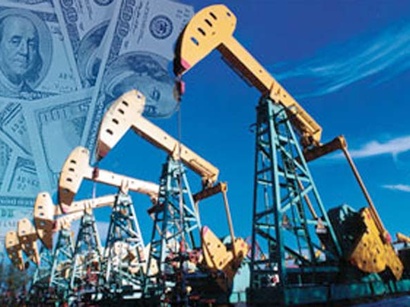Uncertainty hinders foreign investors to decide over Iran oil industry

By Fatma Babayeva
Iran keeps regaining its oil market share by pumping additional barrels to the already oversupplied market.
However, the country needs to recover the aging fields and to develop new ones in order to realize its oil ambitions. Now, attracting foreign investment is a key task that Iran’s oil industry faces to boost production levels.
While it is true that Iran needs to improve the terms of its new oil contract models to attract investors, the most significant factor currently affecting the timetable of foreign investments is the U.S. presidential election, Micha’el Tanchum, a specialist in energy geopolitics told Trend.
Foreign investors are waiting to see what level of continuity will exist between the policies of the next U.S. president and the policies of the current U.S. President Barack Obama, said the expert by emphasizing that one of the two major presidential candidates declared that he would seek to ‘renegotiate’ the Iran deal, however, there is too much uncertainty for foreign investors to finalize their decisions.
Tanchum further added that Iran’s accomplishment of JCPOA will encourage foreign investment if contract terms are sufficiently attractive and U.S.-Iranian relations continue on their overall constructive course.
Iran looks not very hopeful about petro-dollar transactions anymore. On June 17, Iran's Petroleum Minister Bijan Namdar Zanganeh announced that the country sells its crude oil to international markets only through euro.
The U.S. sanctions banning dollar transactions with Iran impedes foreign investors as well.
The root reason for Iran’s decision is said to be the country’s blocked assets worth $2 billion by the U.S. Treasury. Having diversified foreign assets makes the Islamic state feel safer.
Moreover, Iran is expanding ties and hydrocarbon exports to the European countries, most of which has euro-based currency.
The main economic threat that Iran’s mentioned decision poses is the conversion risk. If Great Britain leaves the EU at the result of the referendum that was scheduled for June 23, the economies of remaining countries are expected to suffer, and the exchange range of euro to weaken.
Iran ranks fourth in the world in terms of proven oil reserves. The country holds 9.3 percent of the world’s total proven reserves, and produced 4.2 percent of the world’s total oil output in 2015, according to BP’s statistical review of energy market 2016.
Iran’s crude production currently amounts to 3.8 million a barrel, according to Iranian officials. Nevertheless, OPEC’s latest monthly report stated Iran’s oil output to equal to 3.562 million barrels a day.
During the sanctions period, the country’s oil production and output fell drastically and averaged to 2.8 million barrels a day in 2015.
Iran’s Petroleum Minister recently stated that the country’s recapture of share it lost in the global oil market under the western sanctions did not reduce prices. However, Iran’s increasing oil exports were mostly offset by the disruptions in some major oil producing countries.
If Iran will be able to further increase its oil output in the coming years is a question depending mostly on investments as the country’s spare production capacity is limited for now.
---
Fatma Babayeva is AzerNews’ staff journalist, follow her on Twitter: @Fatma_Babayeva
Follow us on Twitter @AzerNewsAz
